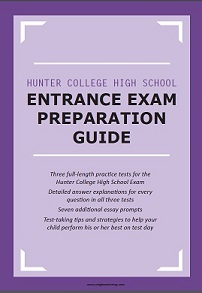Preschool IQ Test: What to Expect
/It's pretty tough task for a toddler to take an IQ test
If you believe your preschool aged child may be cognitively gifted, an IQ test can help you confirm this assumption and determine the most appropriately challenging academic program for your child as she moves toward kindergarten.
We’ll discuss the pros and cons of early IQ testing, the various options for a preschool IQ test, and how to help your child be successful on these assessments.
Early IQ Testing: Pros and Cons
If you decide to have your child take a preschool IQ test, it is important to avoid putting pressure on your child or causing anxiety, as preschool is too young for children to experience academic stress. Academic stress at a very young age can also ultimately cause negative feelings or hesitation toward academics.
Additionally, many experts recommend waiting until a child is 5 years old to take an IQ test. For very young children, IQ tests can be inaccurate. Preschool aged children are sometimes shy around strangers (such as the test administrator) or do not have the attention and focus to accurately complete the entire test.
However, if you treat the test as a low pressure assessment of your child’s abilities and understand that she may score higher when she is a bit older, there is nothing wrong with a preschool IQ test.
The test can give you information that may be helpful as your child enters kindergarten. It can provide insight about her relative strengths and weaknesses, as well as what type of academic program or curriculum would best meet her needs.
You may also wish to share your child’s IQ test results with her teacher and, if the score is especially high, discuss how to adequately challenge and engage your child throughout the school year.
Types of Preschool IQ Tests
While many IQ tests are not designed for very young children, you do have several options when considering a preschool IQ test.
Wechsler Preschool and Primary Scale of Intelligence (WPPSI)
The WPPSI is perhaps the best preschool IQ test, because it is specifically designed to measure the cognitive development of young children. The age range for the test is 2 years and 6 months to 7 years and 7 months.
The test emphasizes child-friendly, developmentally appropriate features, including game-like activities to engage young children, and the WPPSI-IV is the most recent edition.
Children ages 2 years and 6 months to 3 years and 11 months are tested in three major areas on the full scale version of the WPPSI. These three areas and the question types for each are as follows:
Verbal Comprehension:
Visual Spatial:
Working Memory:
The test should take 30-35 minutes to complete.
Stanford Binet IQ Test (SB)
Currently, the most widely used version of the Stanford Binet is the SB5. The SB5 can be administered to children as young as 2, making it an option for a preschool IQ test.
However, it is not uncommon for young children to score a zero on the SB5 because they are not able to focus thoroughly or follow directions adequately. On the other hand, it does offer colorful artwork, toys, and manipulatives.
The SB5 assesses five major skills, with each skill divided into a verbal and a nonverbal subtest, adding up to 10 subtests in total. The subtests typically take about five minutes to complete, and questions get progressively more challenging.
The five skills assessed on the SB5 are:
The SB5 is untimed, but the average test subject takes 45-75 minutes to complete the assessment.
Woodcock-Johnson Tests of Cognitive Abilities (WJ)
This series of subtests is individually administered to children as young as two. However, unlike many IQ tests, the WJ does require reading and writing. Tested skills include:
If your child is assessed using the WJ, the amount of subtests will depend on whether your child takes the Standard Battery (10 tests) or the Extended Battery (20 tests).
Differential Ability Scales (DAS-II)
The DAS-II is an individually administered battery of cognitive and ability tests for children ages 2 years and 6 months to 17 years and 11 months.
The battery consists of 20 subtests that assess skills such as immediate and delayed recall, visual recognition and matching, phonological processing, understanding of basic number concepts, processing and naming speed, and visual and working memory.
The test takes about 90 minutes to complete, depending on which subtests are administered.
How to Help Your Child Succeed on a Preschool IQ Test

Many experts recommend avoiding the word “test” with a preschool aged child. So how can you help your child prepare for a preschool IQ test?
Practice test concepts through activities and games, such as completing patterns, identifying pictures, and working with puzzles and blocks. You can also spend some time with vocabulary flash cards and memory games.
Ideally, you should begin practicing for the preschool IQ test about six months ahead of time. However, you want to spend at least one month familiarizing your child with the types of questions and activities she will encounter on her assessment.
You can also work on test practice questions with your child. Simply present them in a fun, encouraging manner, rather than drilling your child or being overly critical of incorrect answers.
With this information and the tips provided here, you’re on your way to helping your child perform her best on a preschool IQ test!


